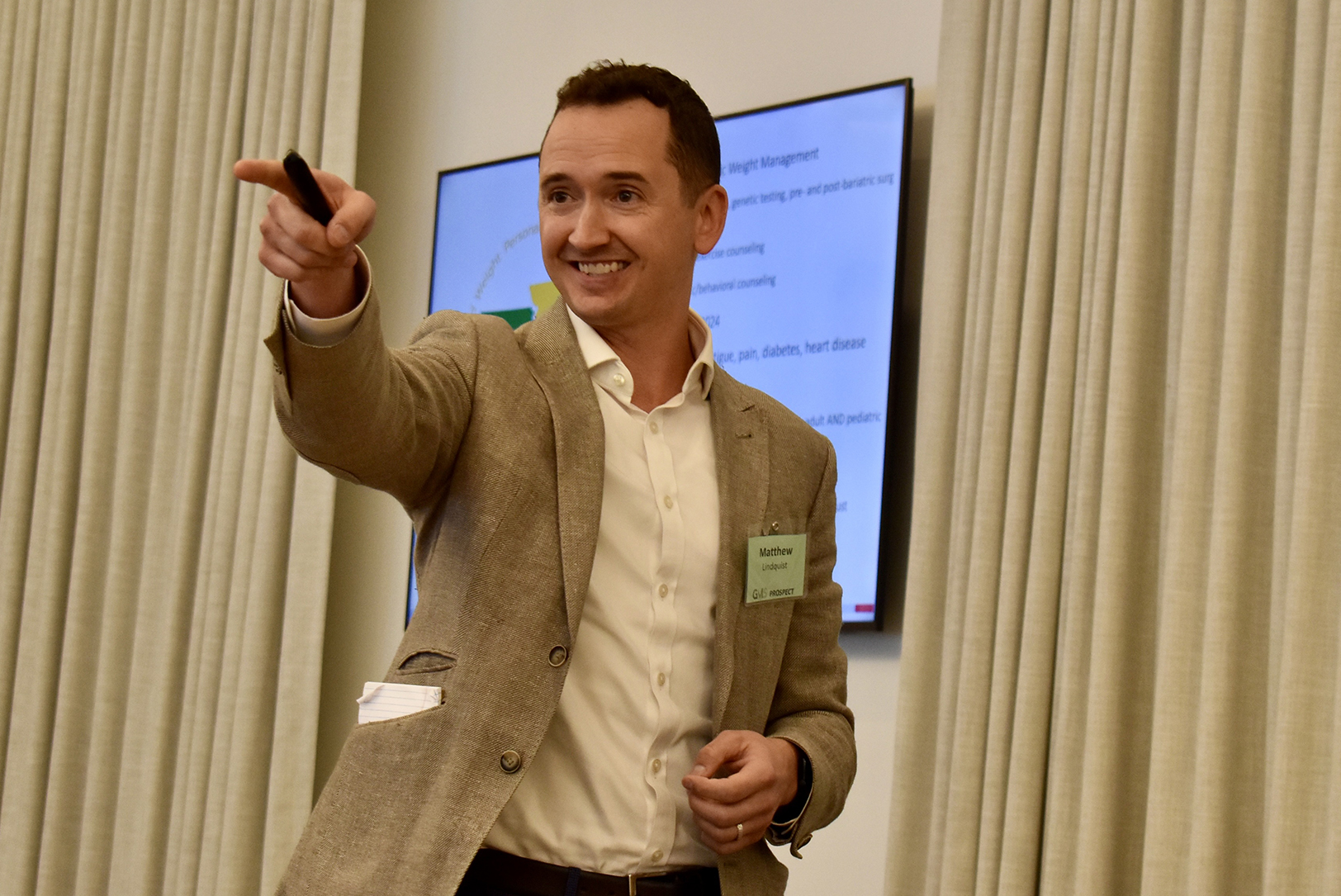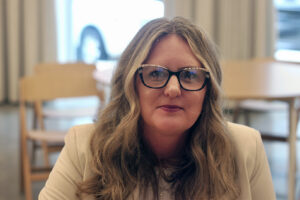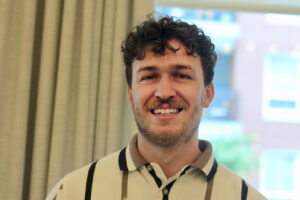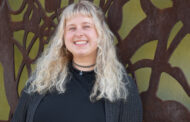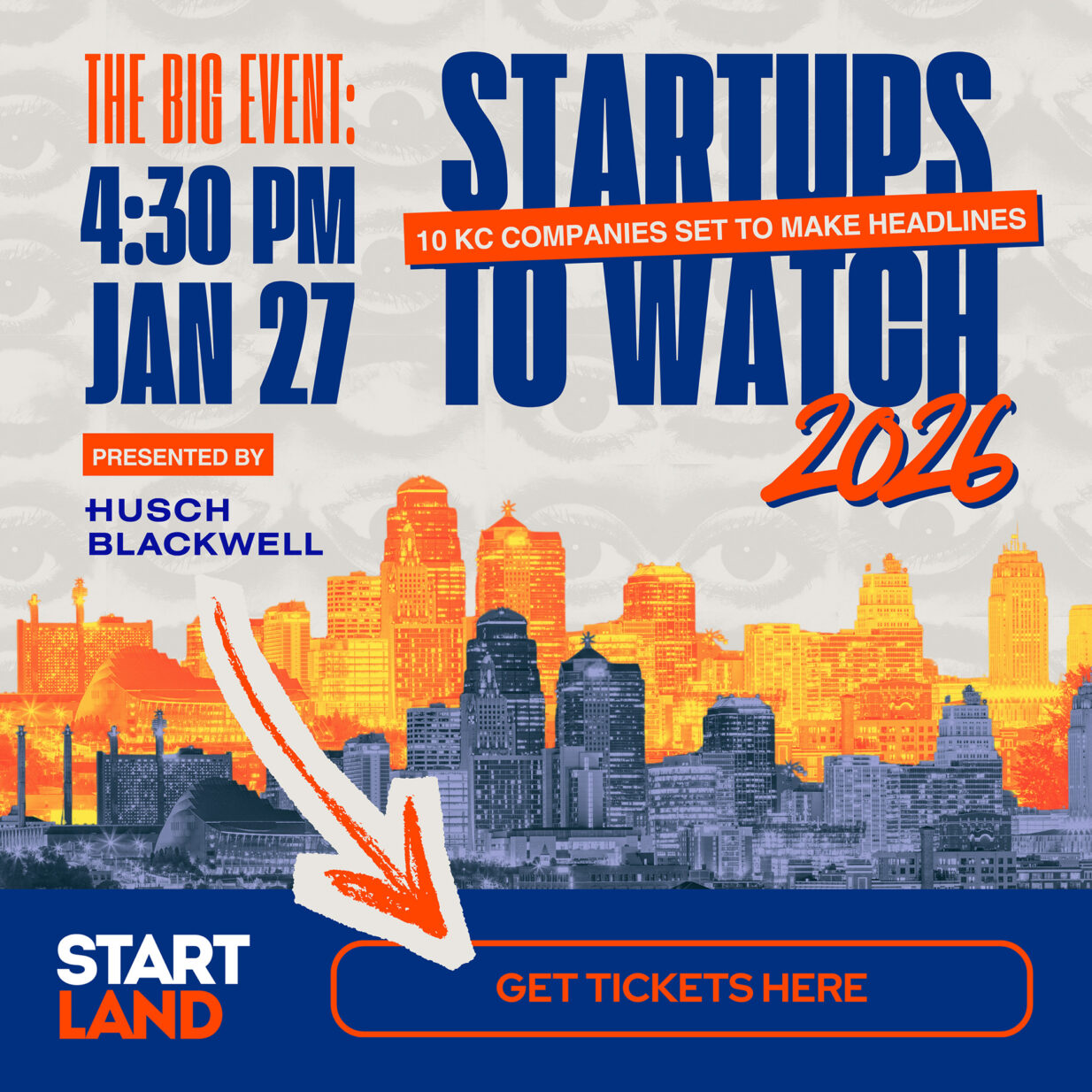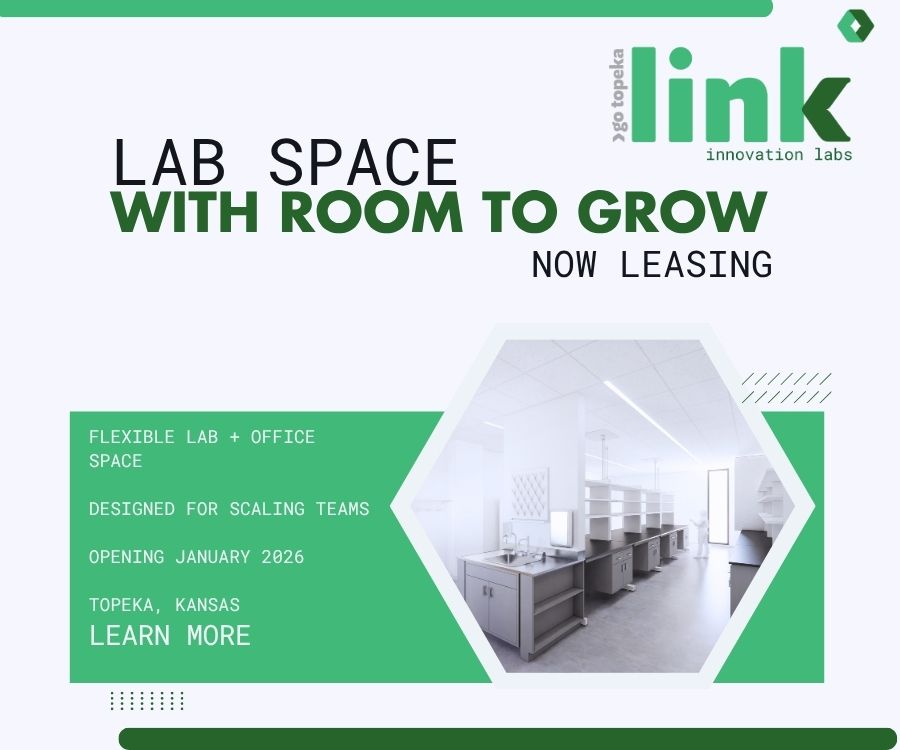After a decade boosting Kansas City founders, Growth Mentoring Service at ECJC is expanding to target assistance specifically toward the region’s early-stage technology startups — using the same proven approach: high-impact, team-based mentoring from top-tier business leaders who’ve already been through it.
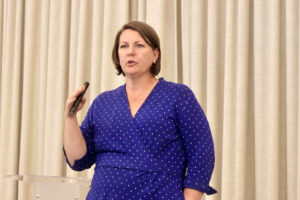
Rebecca Gubbels, managing director of Growth Mentoring Service; photo by Nikki Overfelt Chifalu, Startland News
“We have all these amazing volunteer mentors with deep expertise as either technologists themselves or people who have worked as subject matter experts inside of technology companies, who have early stage company experience,” explained Rebecca Gubbels, managing director of Growth Mentoring Service within the Enterprise Center of Johnson County. “And they’re like, ‘When can we help with this?’”
Launching GMS-Tech ensures that founders of promising early-stage technology companies have access to the resources and mentoring needed to overcome barriers, accelerate growth, and strengthen the region’s innovation economy, said Jeff Shackelford, CEO at ECJC, who along with Gubbels, has already worked with tech founders through a previous role at Digital Sandbox KC.
“They need someone at that early stage to keep them focused on, ‘What are the real things you need to be doing to move from point A to Point B?’” he added. “And there really wasn’t one.”
Over the past decade, GMS mentors have provided $4.1 million in consulting value, helped founders raise $21.8 million in capital, and supported more than $71 million in new sales, according to ECJC.
“In their time with us, the majority of our clients increase their sales by 25 percent or more,” Gubbels noted. “That’s something that we’re really proud of being able to do through the efforts of really well-qualified, fun volunteers who want to get together and just serve with their expertise and knowledge and have a way to give back.”
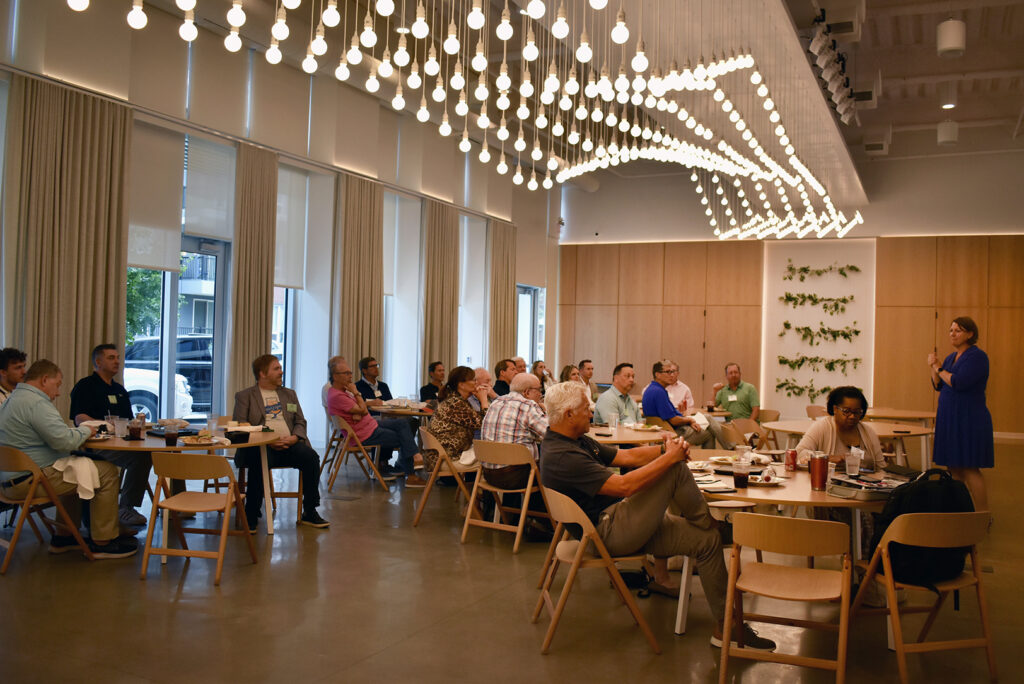
Rebecca Gubbels, managing director of Growth Mentoring Service, right, speaks during a monthly matching meeting between mentors and mentees; photo by Nikki Overfelt Chifalu, Startland News
They’ve done it all
Modeled after MIT’s renowned Venture Mentoring Service, GMS is set apart by its structure and team mentorship model, Gubbels said. Teams meet in-person for an hour and half each month.
“We can make exceptions for a digital meeting, but it’s only on an exception basis because of the value of face to face relationship development,” she continued. “An agenda is required in advance, plus regular reporting of numerical results, so that mentors can see that the time they’re spending is helping someone actually move the needle. Those are some really important components of structure.”
GMS isn’t a casual program where a founder has a few advisors who they can contact when they have a question, Shackelford emphasized.
“This is structured and that’s a big difference from some of the other programs that we’ve seen,” he said.
The teams usually consist of three or four mentors with a diversity of experience, Shackelford noted. Before a founder starts the program, they present their business to the mentors at their monthly meeting and are required to state what areas they need help in, so they can be matched with the right mentors.
“That could be sales, marketing, finance, or whatever,” he added.
Monica Reinert — a growth and transition specialist for Taurus Growth Advisors — has been a mentor with GMS for about two years. She finds it amazing to see the years and years of experience that the mentors have in all different facets of finance and operations, she said.
“We act, in my opinion, more like a volunteer board,” Reinert continued. “A lot of startup companies don’t have boards. So this gives you a group — your own team — of people who are experts in very different areas to come together every single month and be your board of directors. It’s invaluable.”
“You’re getting input from people who’ve done it all,” she noted. “And you’re not paying for it.”
The original GMS program runs 14 months (two months to get deeply acquainted and then 12 months to work towards a strategic goal) and is designed for founders with companies that are already hitting at least $100,000 in annual sales, Gubbels noted. The new tech program doesn’t have a sales requirement, but it is preferred that companies have current, paying customers, have raised funds beyond founder, friends, and family, and have a minimum viable product completed.
GMS Tech programs will only run about six months.
“One month to dive in about what’s most important and five months to execute,” Gubbels explained, “because tech is a comparative race to market share.”
Each program is also renewable with the original program available for an additional six months and the tech program for two units of six months each.
“When the program has technically ended, we help our clients transition into other opportunities,” Gubbels said, “whether it makes sense for Pipeline to be next, or HEMP (Helzberg Entrepreneurial Mentoring Program) is a next natural spot from a mentorship standpoint. But in the meantime, we help our graduates form their own non fiduciary advisory boards.”
Early adopters
SiteScan — a Kansas City-based company automating sewer inspections with AI that launched during Missouri Startup Weekend this past spring in Columbia, Missouri — is among the startups joining the new GMS-Tech program. Co-founder Ian Foster said a friend of his recommended he reach out to Gubbels to find out more about the program.
“We’re all younger guys who haven’t been out of college too long,” he noted. “And as much as we have strengths, I think we have the ability to gain competency in the areas we need to. These (mentors) have been around the Kansas City business ecosystem for decades, and the fact that GMS is offering mentorship and we don’t have to pay for it, it can add so much to what we already have.”
He likes that the program is structured using mentors with a broad spectrum of experience, Foster continued.
“The mentors that they pull are not from just one industry,” he added. “We have an engineering mentor on our team. We have another guy that I think used to be an actuary, but he’s done all kinds of stuff in tech and sales. These people have the experience that we don’t.”




